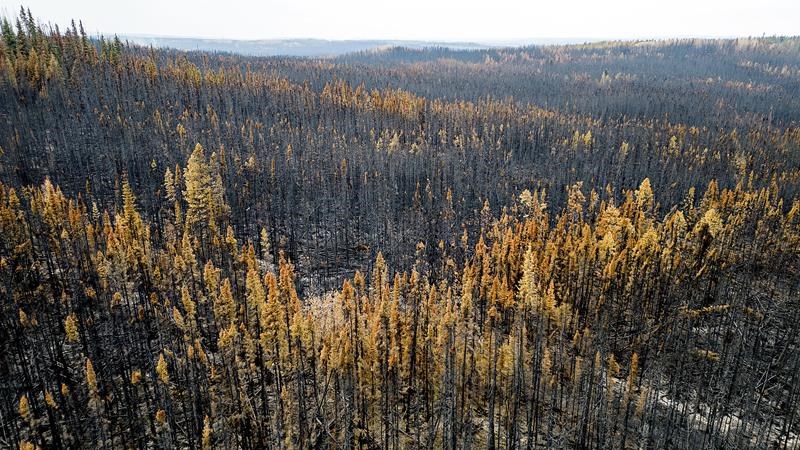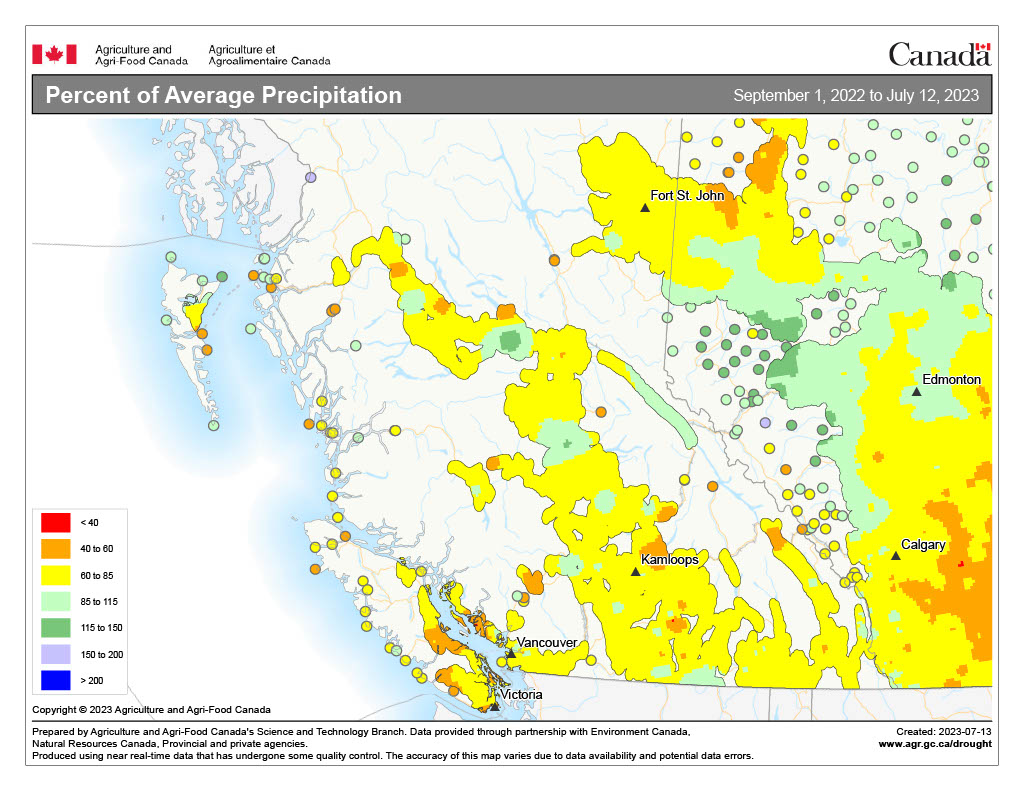
All of Vancouver Island has been moved to a level 5 drought, which is the highest on B.C.’s drought scale, prompting provincial officials to urge people to conserve water.
The drought scale runs from 0, meaning there is enough water to meet all needs, to 5 which means adverse impacts are almost certain.
On July 13, the province moved all of Vancouver Island to level 5 in response to the lack of precipitation and the dry conditions.
While the province is not implementing restrictions at this time, Bowinn Ma, the minister of emergency management and climate readiness, noted a number of communities have already implemented their own restrictions as a result of local conditions.
“I’m calling on everyone, including businesses to follow water restrictions set by First Nations and local authorities and take steps to conserve water even above and beyond those restrictions,” Ma said. “Water is a precious resource and we are fortunate to have some of the best water in the world. Every drop counts and that’s why everyone needs to do their part.”
RELATED: Parksville, Regional District of Nanaimo move to stage 4 water restrictions
Steps that Ma says people can take include taking shorter showers, not watering lawns more than necessary, only running washing machines or dishwashers when they’re full, and turning off the tap when you brush your teeth and shave.
“If each person and company makes a few small changes to how they use water, it can have a profound impact,” Ma said. “We are currently encouraging voluntary reductions at this time, but regulatory actions may be introduced if necessary.”
This drought comes after B.C. has experienced 40 to 80 per cent of its usual rainfall, with most of Vancouver Island receiving less than average, according to the Agriculture and Agri-Food Canada precipitation map.
Story continues below map.

Additionally, Environment Canada has forecast that Vancouver Island will see higher than average temperatures, and less rain than typical through the rest of the summer, which will compound the affects of the current drought conditions.
Premier David Eby and Ma have both said the situation is serious and much of B.C. has never before experienced the current levels of drought this early in the summer.
Officials noted that drought conditions also heighten the risk of wildfires, and the province is already experiencing a difficult wildfire season.
On July 13, there are 353 active wildfires across the province, four of which are on Vancouver Island.
Across the province, 228 of the wildfires are classified as out of control.
The fire danger rating across Vancouver Island is almost entirely the highest level of extreme with a few pockets of the second highest of high.
RELATED: From hoses and shovels to water bombers: how wildfires are being fought across Canada
Story continues below map

On June 24, officials with Coastal Wildfire told CHEK News it urges people to use caution to help prevent wildfires.
“As we’re experiencing new weather conditions and possibly the influx of lightning, we’re just asking the public to continue being diligent with their fire use,” said Jade Richardson, information officer with the Coastal Fire Centre on June 24.
Campfires are currently banned on all of Vancouver Island due to the dry conditions and associated fire risk, but Richardson reminds people to use caution as fires can start from by other means as well.
READ MORE: Campfire ban in effect for Vancouver Island starting June 8
“We’re just asking the public to be well aware of these regulations as well as their use of other types of fires, cigarettes, equipment that could cause sparking, when we’re experiencing conditions that may lead to things such as lightning,” Richardson said.
“Resources are going to be spent towards putting out fires from lightning starts and to avoid having additional starts from human-caused fires is a great help to us.”
If someone sees smoke they believe may be a wildfire, or a wildfire, BC Wildfire Service has a reporting line at 1-800-663-5555 or *5555 on a cell. Additionally, the service has launched an app where people can upload pictures of what they see which can be downloaded on the App Store or Google Play.
-With a file from the Canadian Press




